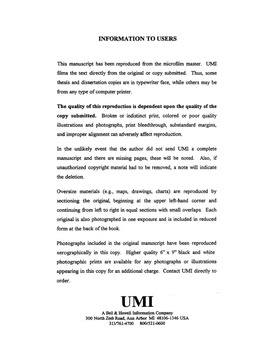| dc.contributor.advisor | Gates, Edward, | en_US |
| dc.contributor.author | Charoenwongse, Chindarat. | en_US |
| dc.date.accessioned | 2013-08-16T12:30:23Z | |
| dc.date.available | 2013-08-16T12:30:23Z | |
| dc.date.issued | 1998 | en_US |
| dc.identifier.uri | https://hdl.handle.net/11244/5745 | |
| dc.description.abstract | The study shows that both Thai and Western cultures influence pre-college and undergraduate piano study and the study of piano pedagogy. Piano study and piano exams are perceived as an enhancement for child development and a symbol for social status. The majority of piano teachers are not music graduates, who tend to teach the way they were taught, and lack enthusiasm for new ways as alternatives. Students problems include lack daily musical enrichment at home; poor posture; weak aural, sightreading, and ensemble skills; limited repertoire; and unbeneficial use of piano exams. Piano pedagogy study needs further development to strengthen teacher training; continuing education for current teachers and the community is needed. Institutional problems include unsupportive attitudes toward pedagogy study; music departments' conflicting goals; limited funding, facilities, texts, materials, and courses. Schools that do not offer piano pedagogy courses should establish such training to enhance the profession. Courses offered should include student teaching, observation, group teaching, current trends and technology in piano pedagogy, and others. | en_US |
| dc.description.abstract | The purpose of the study was to determine the status of undergraduate piano pedagogy course offerings in Thai universities. The study was conducted using questionnaires and interviews to ascertain current course content, organization, unique features, and problems involved in teaching pedagogy in Thailand. It also verified perceived problems and needs in the field of undergraduate piano pedagogy and current pre-college piano study from the viewpoint of eight university piano pedagogy instructors, piano professors who are responsible for piano study, and music education department chairs in six departments of five universities. | en_US |
| dc.description.abstract | Chapter One presents an introduction to the study and Chapter Two is a review of related literature in piano pedagogy in Thailand and the United States. Information from the completed questionnaires of the four piano pedagogy instructors is presented in Chapter Three, and Chapter Four offers the interview information from the same instructors. The interview information from the four professors at institutions that do not offer piano pedagogy is presented in Chapter Five. A summary, conclusions, and recommendations comprise Chapter Six. | en_US |
| dc.format.extent | xi, 210 leaves ; | en_US |
| dc.subject | Education, Higher. | en_US |
| dc.subject | Piano Instruction and study Universities. | en_US |
| dc.subject | Education, Music. | en_US |
| dc.subject | Music Instruction and study. | en_US |
| dc.subject | Education, Teacher Training. | en_US |
| dc.title | Undergraduate piano pedagogy course offerings in Thai universities. | en_US |
| dc.type | Thesis | en_US |
| dc.thesis.degree | D.M.A. | en_US |
| dc.thesis.degreeDiscipline | School of Music | en_US |
| dc.note | Major Professor: Edward Gates. | en_US |
| dc.note | Source: Dissertation Abstracts International, Volume: 59-12, Section: A, page: 4311. | en_US |
| ou.identifier | (UMI)AAI9914398 | en_US |
| ou.group | Weitzenhoffer Family College of Fine Arts::School of Music | |
